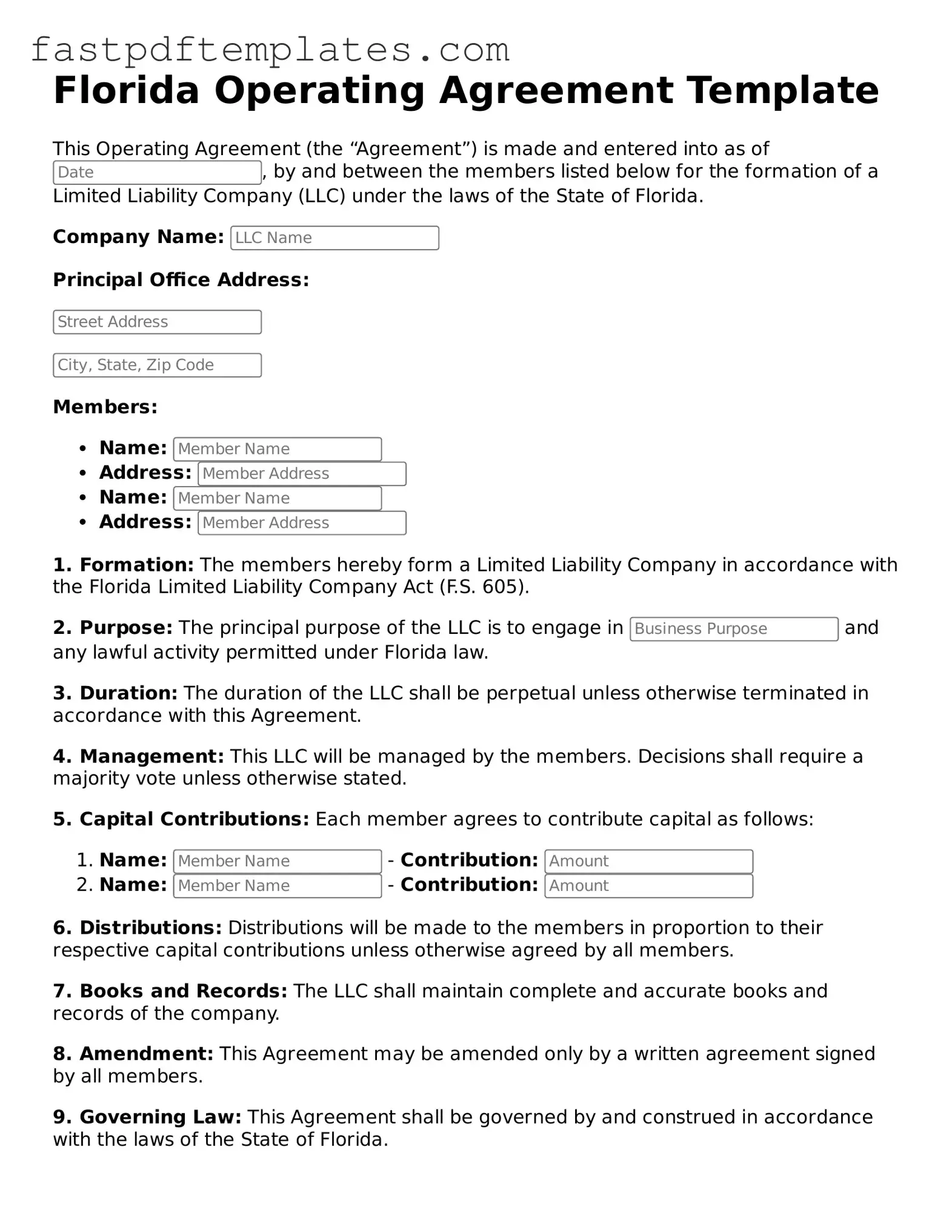Attorney-Approved Florida Operating Agreement Document
The Florida Operating Agreement form is a crucial document that outlines the management structure and operational procedures of a limited liability company (LLC) in the state of Florida. This agreement serves as a roadmap for the members, detailing their rights and responsibilities. By establishing clear guidelines, it helps prevent disputes and ensures smooth business operations.
Access Document

Attorney-Approved Florida Operating Agreement Document
Access Document
Your form still needs completion
Complete your Operating Agreement online and download the final PDF.
Access Document
or
Click for PDF Form
